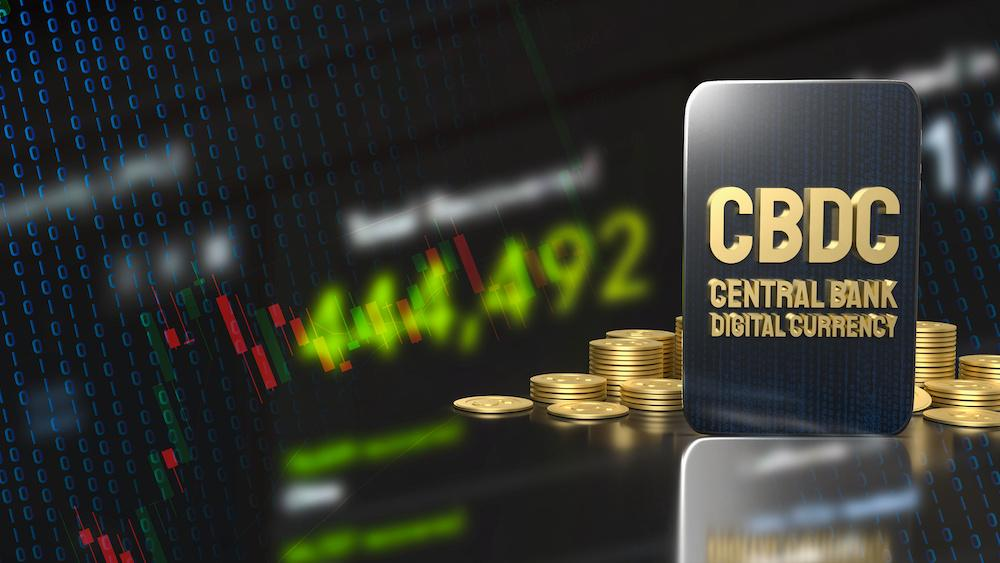All You Need to Know About the Latest Developments in the Cryptocurrency World
As cryptocurrency continues to gain momentum, it has become an exciting industry to watch. With the constant evolution of technology, there is always something new happening in the world of crypto. In this article, we will take a closer look at the latest developments in the cryptocurrency industry.
Find the latest cryptocurrency news, updates, values, prices and more related to Bitcoin, Ethereum, Dogecoin, DeFi and NFTs at https://naughtycrypto.io/
Introduction
Cryptocurrency has come a long way since the inception of Bitcoin in 2009. Today, there are thousands of cryptocurrencies in existence, and the industry has grown to become a multi-billion dollar market.

The growth of cryptocurrency has been driven by various factors such as decentralization, transparency, security, and anonymity. In recent years, there have been several developments in the cryptocurrency industry that are worth exploring.
What is Cryptocurrency?
Cryptocurrency is a digital or virtual currency that uses cryptography for security. Unlike traditional currency, cryptocurrency is decentralized, meaning it operates independently of a central authority such as a government or financial institution. Cryptocurrencies are stored on a decentralized ledger known as a blockchain, which records all transactions and ensures that they are secure and transparent.
Why is Cryptocurrency Gaining Popularity?
There are several reasons why cryptocurrency is gaining popularity. Firstly, it provides users with greater control over their funds as they are not dependent on traditional financial institutions. Secondly, cryptocurrencies offer a higher level of security as transactions are secured by cryptography and stored on a decentralized ledger. Thirdly, cryptocurrency allows for faster and cheaper transactions compared to traditional banking methods. Finally, cryptocurrency is seen as a hedge against inflation and political instability.
Latest Developments in the Cryptocurrency Industry
Rise of Non-Fungible Tokens (NFTs)
Non-fungible tokens (NFTs) have gained popularity in recent years. NFTs are unique digital assets that represent ownership of a specific item, such as a piece of artwork, music, or even a tweet. NFTs use blockchain technology to ensure that the ownership of the asset is verified, making them valuable to collectors and investors.
Central Bank Digital Currencies (CBDCs)
Central Bank Digital Currencies (CBDCs) are digital versions of a country’s fiat currency. Unlike traditional cryptocurrencies, CBDCs are issued and backed by a central authority, such as a central bank.

CBDCs aim to provide greater financial inclusion, reduce transaction costs, and improve payment efficiency.
Decentralized Finance (DeFi)
Decentralized finance (DeFi) is a new financial system that operates on a decentralized blockchain network. DeFi aims to provide financial services without the need for traditional financial intermediaries such as banks. DeFi platforms offer services such as lending, borrowing, trading, and insurance.
Increased Institutional Adoption
In recent years, there has been an increase in institutional adoption of cryptocurrency. Large corporations such as Tesla, MicroStrategy, and Square have all invested in Bitcoin. Additionally, several banks such as JP Morgan, Goldman Sachs, and Citigroup have announced plans to offer cryptocurrency services to their clients.
Challenges Facing the Cryptocurrency Industry
Despite the growth of the cryptocurrency industry, there are several challenges that it faces.
Certainly! Here are some of the challenges currently facing the cryptocurrency industry:
Volatility
Cryptocurrencies are known for their high volatility, which can make them risky investments. The value of cryptocurrencies can fluctuate rapidly and unpredictably, which can result in significant gains or losses for investors. This volatility has made it difficult for cryptocurrencies to be widely accepted as a reliable store of value.
Regulation
Regulation is another significant challenge facing the cryptocurrency industry. Many governments and financial regulators around the world are still figuring out how to classify and regulate cryptocurrencies.

Some countries have banned cryptocurrencies outright, while others have implemented strict regulations that limit their use. The lack of clear and consistent regulations can create uncertainty for investors and hinder the growth of the industry.
Cybersecurity
Cybersecurity is a critical concern for the cryptocurrency industry. As cryptocurrencies and their underlying blockchain technology become more valuable, they become increasingly attractive targets for cybercriminals. Cyber attacks can result in the theft of cryptocurrency, which can be difficult to recover. Additionally, hacks and security breaches can damage the reputation of cryptocurrencies and undermine investor confidence.
Future of Cryptocurrency
Despite the challenges facing the cryptocurrency industry, there is still a lot of potential for growth and innovation. As technology continues to advance, there will likely be new and exciting developments in the cryptocurrency space. Some experts predict that cryptocurrencies could eventually become mainstream and widely accepted as a form of payment.
Conclusion
In conclusion, the cryptocurrency industry is constantly evolving, with new developments and challenges emerging all the time. While there are still many uncertainties and risks associated with cryptocurrencies, there is also a lot of potential for growth and innovation. As the industry continues to mature, it will be interesting to see how it develops and whether it can overcome the challenges it currently faces.
FAQs
- Is it safe to invest in cryptocurrencies?
- As with any investment, there is always some level of risk involved. It is important to do your own research and understand the potential risks and rewards before investing in cryptocurrencies.
- What is the difference between cryptocurrency and fiat currency?
- Cryptocurrency is a digital or virtual currency that uses cryptography for security and operates independently of a central authority. Fiat currency, on the other hand, is a government-issued currency that is not backed by a physical commodity.
- What is blockchain technology?
- Blockchain technology is a decentralized ledger that records all transactions and ensures that they are secure and transparent. It is the underlying technology that powers cryptocurrencies and has many other potential applications.
- Can cryptocurrencies be used as a form of payment?
- Yes, some merchants and businesses accept cryptocurrencies as a form of payment. However, widespread adoption is still limited and varies by country and industry.
- What is the role of institutional investors in the cryptocurrency market?
- Institutional investors such as banks and corporations have been increasingly investing in cryptocurrencies, which has helped to legitimize the industry and increase its value.



